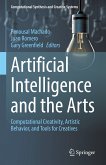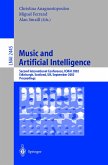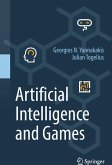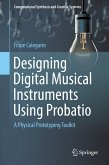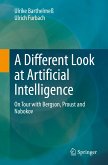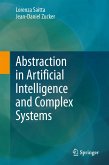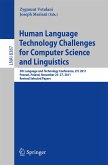This unique reference presents comprehensive coverage of the latest advances in research into enabling machines to listen to and compose new music. It includes chapters introducing what is known about human musical intelligence and on how this knowledge can be simulated with artificial intelligence (AI). The development of interactive musical robots and emerging new approaches to AI-based musical creativity are also introduced, including brain-computer music interfaces, bio-processors and quantum computing.
AI technology permeates the music industry, from management systems for recording studios to recommendation systems for online commercialization of music through the Internet. Yet whereas AI for online music distribution is well advanced, this book focuses on a largely unexplored application: AI for creating the actual musical content.
Topics and features:
* The definitive work on AI and music computing, featuring insights from leading experts in the field
* Highlights how AI is much more than just deep learning, showcasing a range of different approaches and developments
* Introduces new and emerging topics in AI, including biocomputing and quantum computing
Prof. Eduardo Reck Miranda is a composer and professor in Computer Music at the University of Plymouth, UK, where he is director of the Interdisciplinary Centre for Computer Music Research. His previous publications include the Springer titles Guide to Unconventional Computing for Music, Guide to Brain-Computer Music Interfacing and Guide to Computing for Expressive Music Performance.
Dieser Download kann aus rechtlichen Gründen nur mit Rechnungsadresse in A, B, BG, CY, CZ, D, DK, EW, E, FIN, F, GR, HR, H, IRL, I, LT, L, LR, M, NL, PL, P, R, S, SLO, SK ausgeliefert werden.
Es gelten unsere Allgemeinen Geschäftsbedingungen: www.buecher.de/agb
Impressum
www.buecher.de ist ein Internetauftritt der buecher.de internetstores GmbH
Geschäftsführung: Monica Sawhney | Roland Kölbl | Günter Hilger
Sitz der Gesellschaft: Batheyer Straße 115 - 117, 58099 Hagen
Postanschrift: Bürgermeister-Wegele-Str. 12, 86167 Augsburg
Amtsgericht Hagen HRB 13257
Steuernummer: 321/5800/1497
USt-IdNr: DE450055826
Bitte wählen Sie Ihr Anliegen aus.
Rechnungen
Retourenschein anfordern
Bestellstatus
Storno



